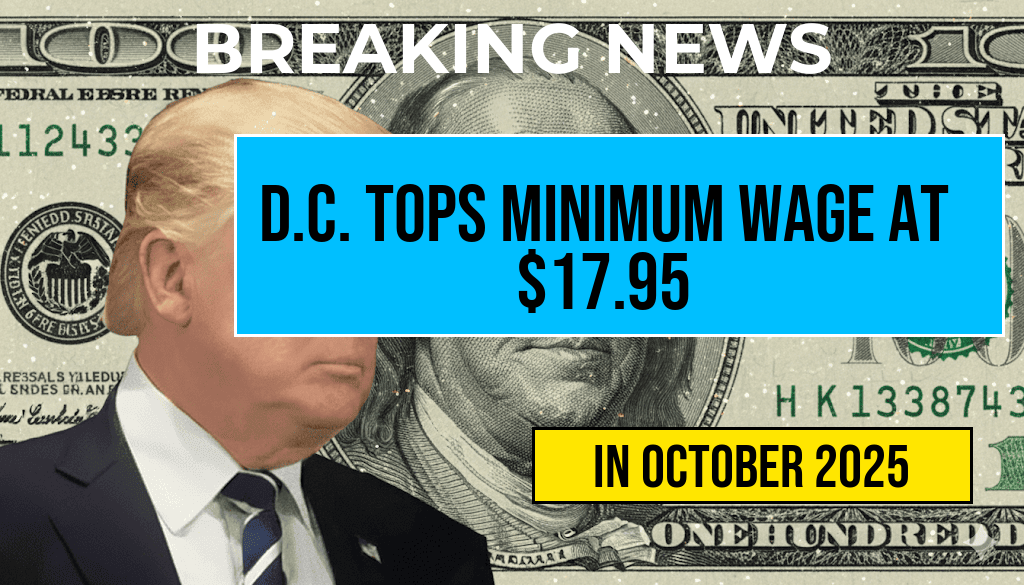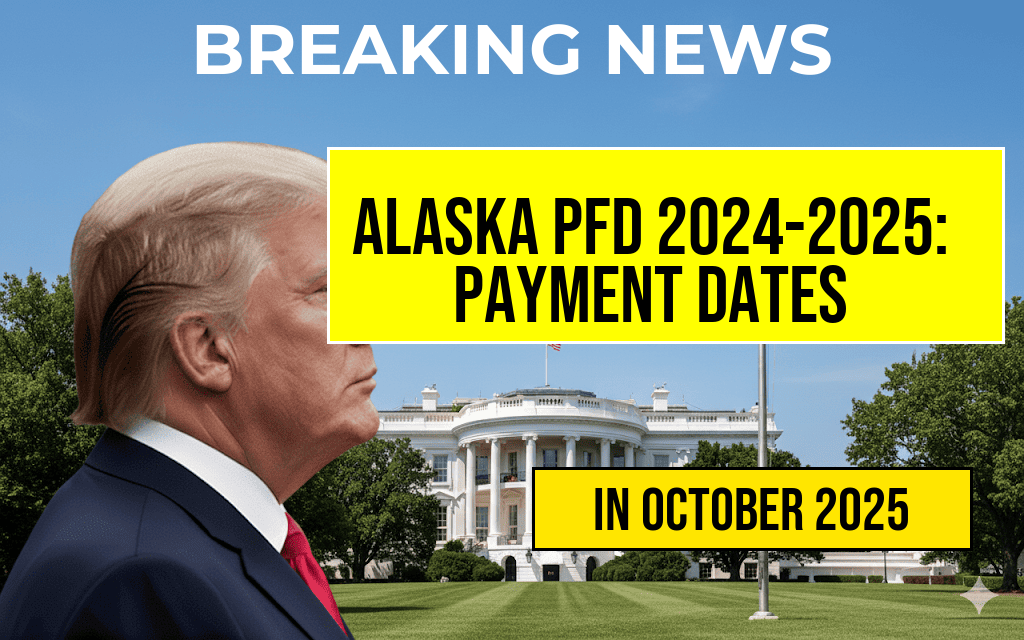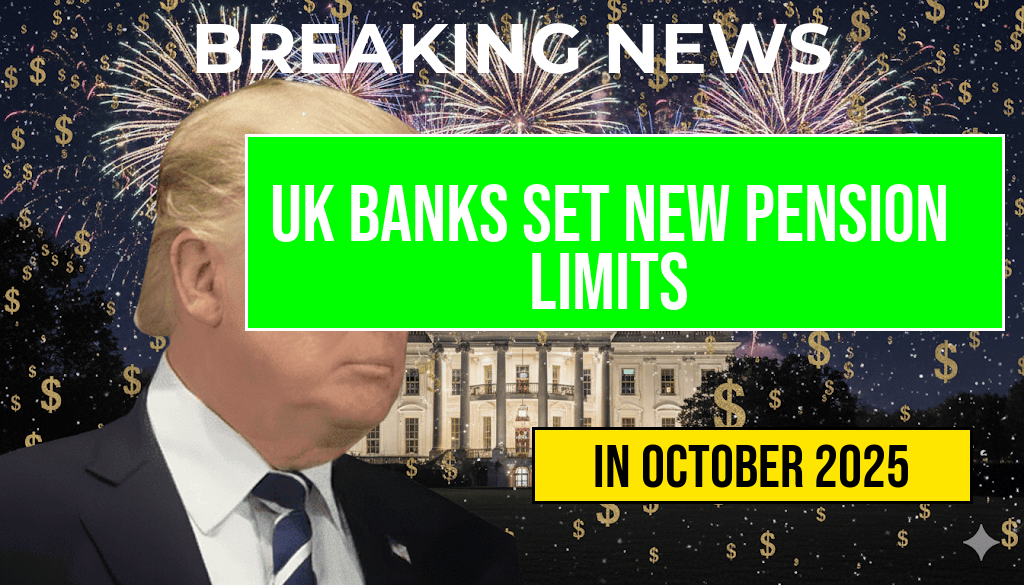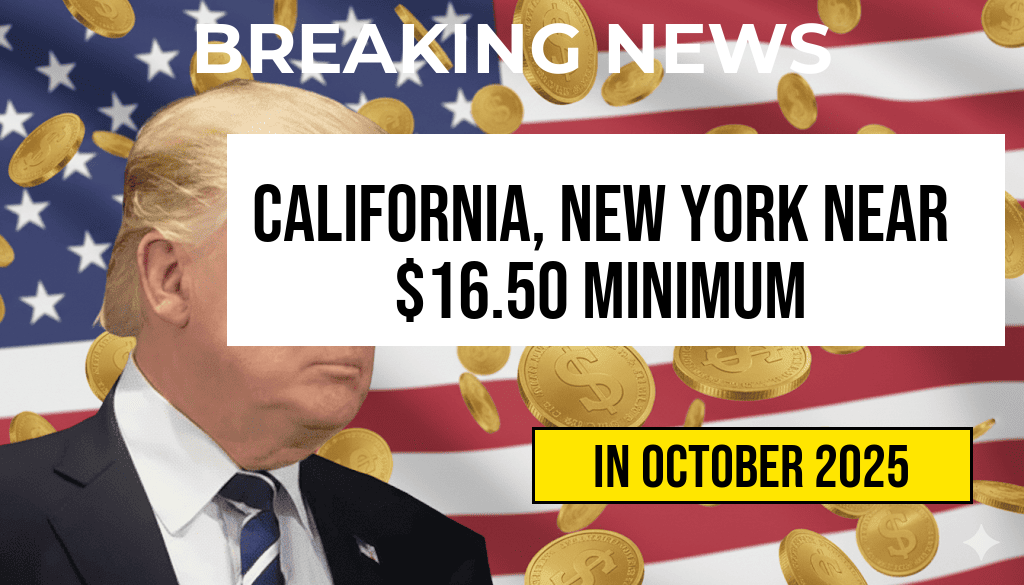Washington D.C. has cemented its position as the city with the highest minimum wage in the United States, setting the rate at $17.95 per hour as of 2024. This figure surpasses the national average and reflects the city’s ongoing efforts to address economic disparities and rising living costs. The increase, which took effect at the start of the year, aligns with city policies aimed at improving wages for low-income workers, especially in sectors such as hospitality, retail, and public service. D.C.’s decision to lead the nation on this front underscores a broader trend among progressive jurisdictions prioritizing wage growth amid inflationary pressures, while also sparking debates over potential impacts on employment and small businesses. As other states and cities consider similar measures, Washington’s approach offers a case study in balancing economic equity with sustainable growth.
Background on Washington D.C.’s Minimum Wage Policy
The District of Columbia has a long history of progressive labor policies, with minimum wage increases often serving as a key component of efforts to reduce income inequality. The current rate of $17.95 per hour was established through legislation passed in late 2023, reflecting a scheduled annual adjustment based on inflation and cost of living indices. This adjustment aims to keep pace with rising expenses in the region, which has experienced significant growth in housing costs, transportation, and daily essentials over recent years. The city’s policymakers argue that setting a high minimum wage is essential for ensuring economic stability for workers who form the backbone of the local economy.
Factors Driving the Wage Increase
Cost of Living and Economic Growth
- Washington D.C. has seen a steady increase in housing prices, with median rent rising over 10% in the past year alone, according to local real estate reports.
- Transportation costs have also climbed, partly driven by expanding public transit options and higher fuel prices.
- Inflation rates in the city have consistently outpaced national averages, prompting adjustments in wage policies to protect low-income earners.
Legislative and Political Support
- The city council and mayor’s office have championed policies to raise the minimum wage annually, citing the importance of living wages for economic justice.
- Public support for these measures remains strong, especially among advocacy groups and labor unions seeking to improve working conditions.
- Opponents argue that such increases could lead to higher unemployment or increased costs for consumers and small businesses.
Impact on Local Economy and Workforce
| City | Minimum Wage | Effective Date |
|---|---|---|
| Washington D.C. | $17.95 | January 2024 |
| Seattle | $18.00 | January 2024 |
| San Francisco | $16.99 | July 2023 |
| New York City | $15.00 | December 2023 |
Economists and local business leaders are closely monitoring the effects of the wage hike. Advocates highlight improvements in workers’ purchasing power and reductions in poverty levels. Data from previous increases suggest that, in Washington D.C., there has been a modest uptick in employment among low-wage sectors, alongside increased consumer spending. However, some small business owners express concern over higher labor costs, which could lead to increased prices or reduced staffing hours.
Broader Context and Future Outlook
The D.C. minimum wage serves as a benchmark for other jurisdictions considering similar policies. Several states, including California and New York, have already adopted higher minimum wages, with many cities planning incremental increases over the next few years. Nationally, discussions continue around the federal minimum wage, which has remained at $7.25 since 2009, despite mounting calls for reform. Advocates argue that a higher federal baseline is necessary to address economic inequality nationwide, while opponents caution against potential negative effects on employment and business competitiveness.
Looking ahead, Washington D.C.’s approach might influence legislative debates across the country. By maintaining one of the highest minimum wages, the city demonstrates that targeted policies can coexist with economic growth, though the long-term impacts remain subject to ongoing analysis. As policymakers, business leaders, and workers navigate this evolving landscape, the focus remains on balancing fair wages with a resilient economy.
Sources: Wikipedia – Minimum wage in the United States; Forbes – Washington D.C. Sets New High for Minimum Wage
Frequently Asked Questions
What is the current minimum wage in Washington D.C.?
The current minimum wage in Washington D.C. is $17.95 per hour, making it the highest in the nation.
How does Washington D.C.’s minimum wage compare to other states?
Washington D.C. leads the nation with its $17.95 per hour minimum wage, surpassing most states’ minimum wages and setting a new standard nationwide.
When did Washington D.C. implement the new minimum wage?
Washington D.C. recently increased its minimum wage to $17.95 per hour, reflecting ongoing efforts to improve wages for workers in the region.
Who is affected by the minimum wage increase in Washington D.C.?
The minimum wage applies to workers across various sectors within Washington D.C., ensuring fair pay for employees in the city’s economy.
Are there upcoming changes or future plans regarding the minimum wage in Washington D.C.?
While the current minimum wage is set at $17.95 per hour, city officials may consider future adjustments based on economic conditions and living costs.






